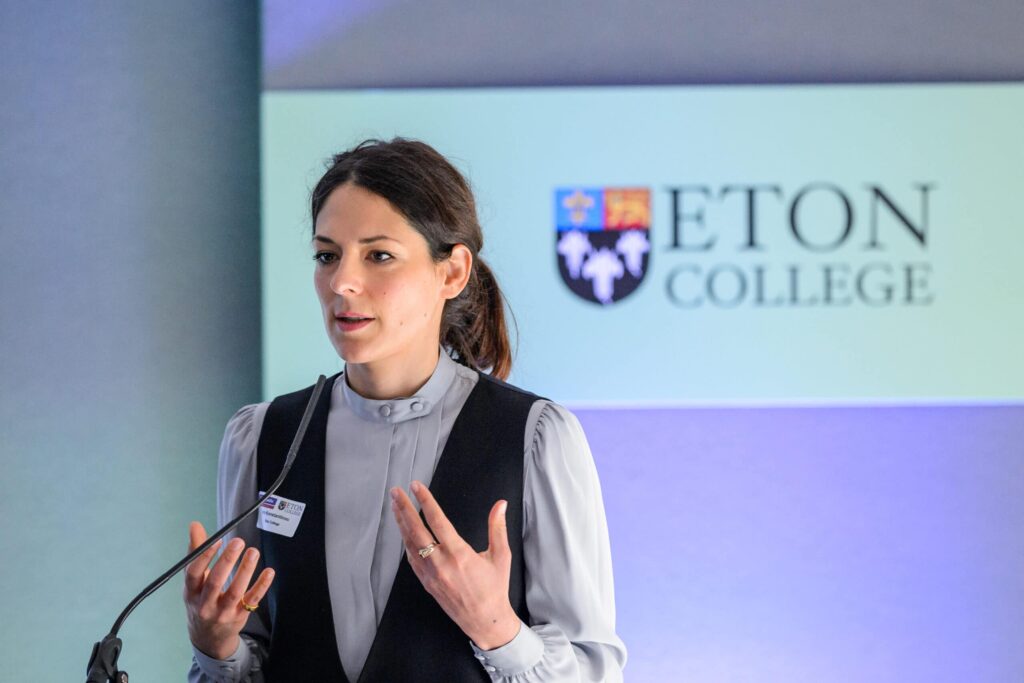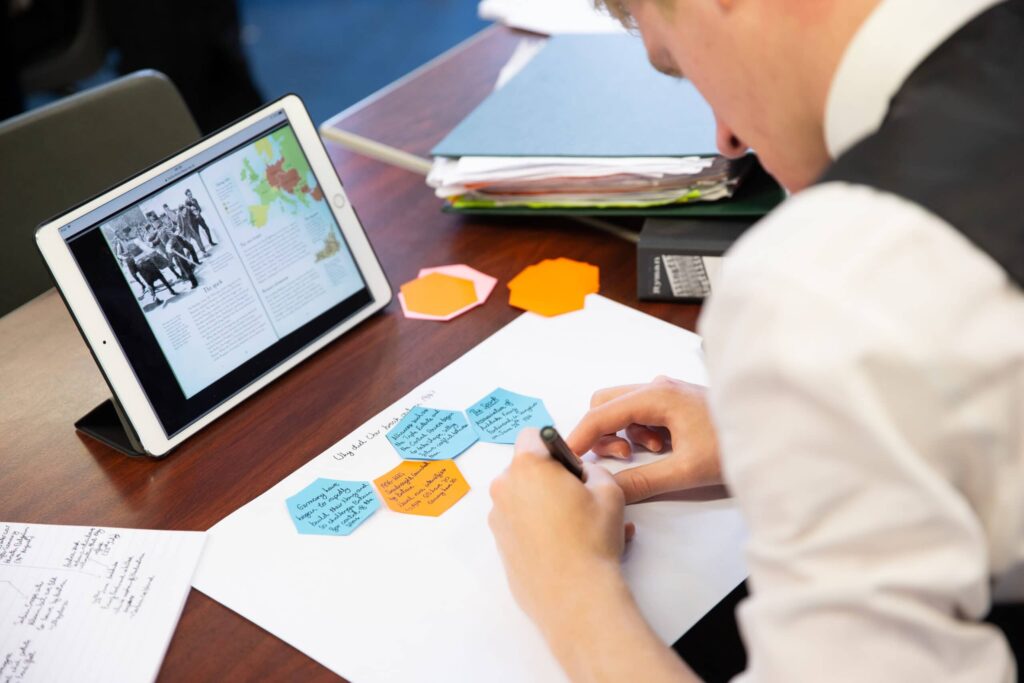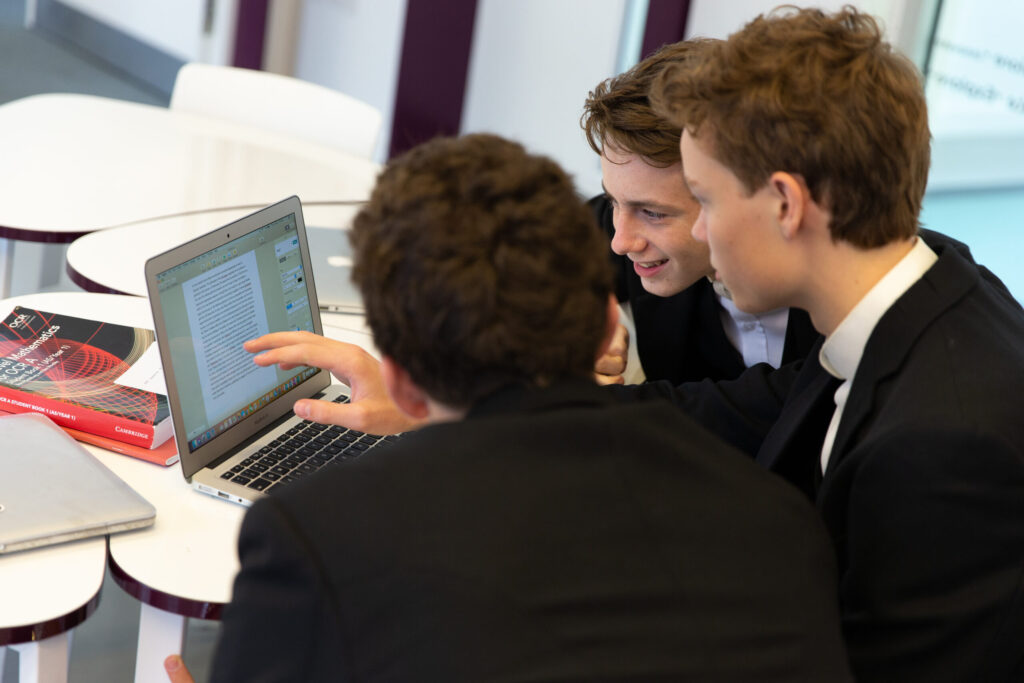(part 2)
Iro Konstantinou
Researcher-in-residence, Eton College
I was appointed as the Researcher-in-Residence at the Tony Little Centre at the end of 2017. I was still finalising my PhD thesis and I was very much torn between staying in academia or accepting a role at a school and perhaps losing the momentum of writing papers, attending conferences, and being part of the active debates around research. I was also sceptical of the role research had in schools. In HE, academics complained about the fact they would soon be ‘judged’ on their teaching with the Teaching Excellence Framework (TEF). Was it now that schools would be ‘judged ‘on their research outputs? However, I soon realised that there was great potential to what could be achieved through conceptualising research in schools in broader terms. Admittedly a well-resourced school, such as Eton College, could offer great opportunities to engage in research, with a physical space which offered abundant opportunities for experimentation and innovation. What I also came to realise was the potential that lies in collaboration across schools and how this role allowed me to be part of a community of teachers and researchers in schools across the country.
There is a real need and a rightful place for research in schools. This has been happening, but there is potential for this to become the norm across schools which might still be trying to balance their priorities between producing their own research data and using research findings in the classroom in order to enhance pedagogical practices. I believe there need not be such a conundrum: any engagement with evidence-based pedagogy has the potential to result in more efficient practice. Auspiciously, teachers seem keen to engage with the process. There are several projects which are in progress at Eton, most of which are not only looking to utilise the most innovative of methods, but also to make teaching more efficient and effective and to ensure that pedagogies have the scope to develop both academic excellence and contribute to skills which are vital for 21st century students.1
Joanna Rainey
History teacher, Eton College
From a teacher’s perspective, engaging in and with research is something that I have always seen as central to my job. From the first days of the PGCE to five years in, I am consistently aware of wanting and needing to do better for my students. This ranges from improving my techniques to engage students, knowing how to identify the problems and reach those who aren’t engaged, measuring progress and feeling confident in how I assess it, and being secure in knowing what works and what doesn’t – and why. As I am currently undertaking an MA in Education Management, it is this last question which has struck me most forcefully: how do we know whether what is happening in our classrooms is right; and if it is, why is it? A fellow student recently remarked that she knew academic grouping for younger years was detrimental because she had seen that mixed ability grouping worked in her school. But she couldn’t explain why she was so convinced of this, or how she could prove it enough to change or continue her practice. The immediate dismissal of research as being high-minded and dictatorial, removed from everyday reality on the frontlines of the classroom, is a perception that limits how teachers can engage successfully with research as both consumers and creators. Indeed, most teachers would not recognise any of the numerous research organisation mentioned in Nelson and O’Bierne’s NFER study (2014), indicating a chasm between schools and academic research that is hampering both in achieving a common goal: improving schools for the students who study in them.
So why are we not doing enough of it at the moment?
I wonder if there is a fear or superstition amongst teachers that research will only tell them something they already know (e.g. the foundations of good quality teaching and learning are subject knowledge, classroom management, well-structured lessons and effective assessment), and not provide more than the obvious. It is clear that whilst some research does this, it expands further to provide value in explaining what makes one type of assessment more effective than another, or what a structured lesson consists of, through comparative and large scale studies. On the other side of the argument, there is widespread expectation that research will be limited in scale, relevance, quality and ridden with ideological presuppositions, and essentially useless in helping teachers with concerns and problems for which they need immediate, and trustworthy, answers. Beyond these difficulties, getting teachers not just to read research but to undertake it themselves reveals further hurdles. Academic research has criticised school- produced research (e.g. the Action Research movement) as lacking in evidential basis due to the practical difficulties of organising control groups and the necessary focus on classroom based designs. When teachers are faced with the fear of undertaking research they cannot depend upon to provide wholly accurate results, the drive to continue is easily lost and explained away by lack of time and a mountain of other responsibilities.
Yet research comes in many forms. Just as the International Boy’s School Coalitions annual Action Research programme values qualitative data (including observations, questionnaires, interviews and journals) to learn about students and their progress rather than demanding quantitative proof, it is clear that simply thinking about how and what you are teaching will improve your practice and your ability to engage with research. It is a double victory, as Saunders (2010) proves by concluding that engaging with research is likely to increase professional skills of enquiry and help teachers to avoid face-value interpretations. Furthermore, many of the research topics that teachers could engage with and in would be wide in their applicability. Therefore, the potential to create a community of engaged teachers, or a research ‘ecosystem’ as Hargreaves (1996) and Goldacre (2013) hoped for with their call for ‘Knowledge Mobilisation’, would mean that the diagnosis of problems in some schools might provide the solutions needed for others.




